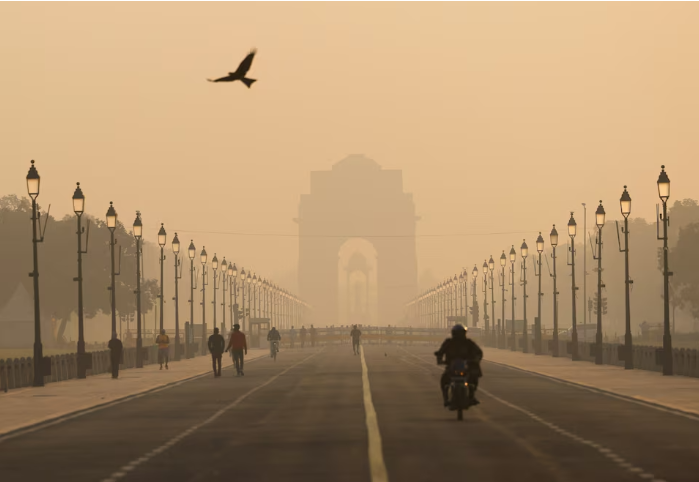New Delhi once again topped the global air pollution charts after Diwali celebrations. Revelers defied a longstanding firecracker ban, contributing to severe air quality issues in India’s capital city. According to IQ Air, the air quality index surged to a hazardous 348, making Delhi the world’s most polluted city as Diwali celebrations filled the air with thick smog, cloaking landmarks and worsening health conditions.
Diwali’s Impact on Delhi’s Air Quality
Diwali, the Hindu festival of lights, is traditionally celebrated with fireworks, and despite a ban, many residents continue to observe this custom. Following Thursday night’s festivities, Delhi’s air became heavily polluted, impacting visibility and creating health risks. Popular locations like the Presidential Palace and surrounding parks were enveloped in dense smog, a stark reminder of the air quality issues that annually plague the city.
Ban on Firecrackers: A Challenge to Enforce
In recent years, local government officials, with directives from the Supreme Court, have imposed a ban on firecrackers during Diwali and the winter season to curb pollution levels. However, enforcing this measure remains challenging, with many residents believing it interferes with traditional practices. While some Hindu groups argue that the ban disrupts the celebration, government officials have clarified that the restriction aims to safeguard public health, particularly in light of rising respiratory issues in the population.
Seasonal Farm Fires Worsen the Situation
Adding to the Diwali pollution is the annual practice of crop burning in neighboring northern states. Every winter, farmers burn crop residue, generating vast quantities of smoke that drifts into Delhi. Combined with the cooler winter air, which traps pollutants close to the ground, this practice contributes significantly to the city’s already high levels of airborne toxins, creating a seasonal spike in pollution that’s difficult to mitigate.
Public Health Concerns and Future Measures
Delhi’s hazardous air quality levels following Diwali raise serious health concerns, with hospitals seeing more patients suffering from respiratory issues each year. Environmental and health advocates are calling for stricter enforcement of pollution regulations, increased public awareness, and alternative celebration methods that align with tradition but minimize environmental impact.
Conclusion
As New Delhi grapples with high pollution levels after Diwali, it underscores the need for comprehensive measures to address seasonal pollution spikes. Until sustainable solutions are in place, residents are urged to follow air quality advisories and take precautions to protect their health.

